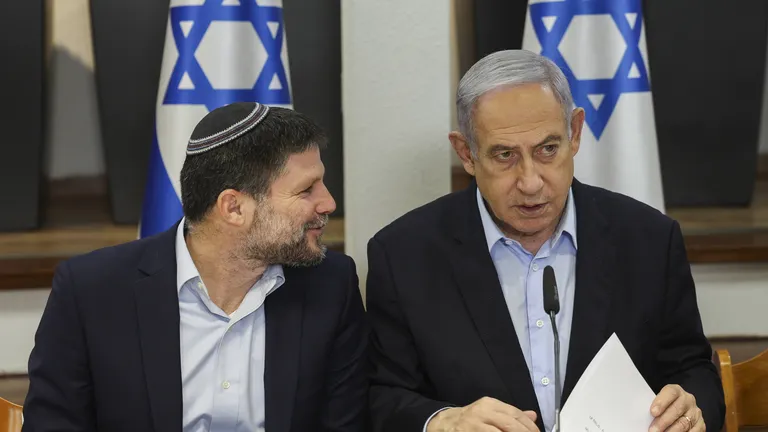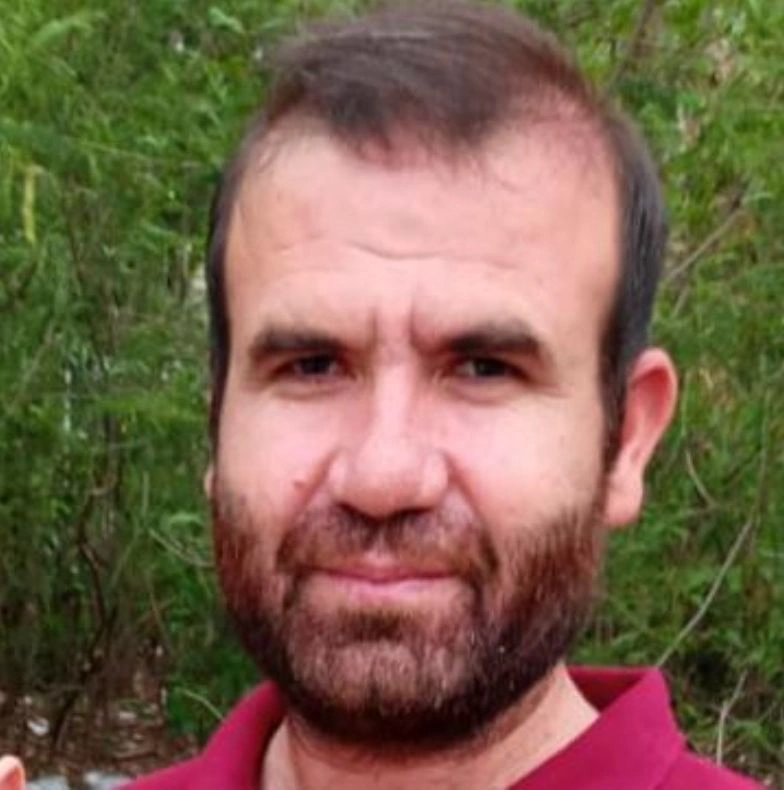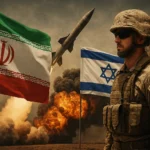In a turn of events that seems central in the build-up of friction, Israel has extended a top diplo-relations team to Doha, Qatar to meet with Hamas in an indirect plea over negotiations. The delegation, which consists of officials, such as coordinator for prisoners Gal Hirsch, political adviser Offer Falk, and intelligence representatives, left on Sunday preceding the planned visits by the Prime Minister Benjamin Netanyahu to Washington to meet the U.S President Donald Trump.
The mission of the delegation is twofold, the first one is to negotiate a ceasefire in the Gaza Strip, as well as promoting a hostage prisoner exchange, which could release Israeli hostages who remain in the custody of Hamas. The decision by Netanyahu to send negotiators was dramatic, to say the least, and it shows how much pressure the international community exerts on him to find a Diplomatic solution to the war that has lasted almost 22 months, and it also can be seen as the external pressure to find a solution that leads to the release of the hostages that has lasted this long.
Why Qatar?
Qatar has been a key negotiator between the Israel and Hamas war. As the host to the Hamas leaderships and the mediator of earlier deals, it has access to both sides, such as the January 2025 ceasefire. Its capital Doha is now a diplomatic centre in proximity talks, as Israel and Hamas carry out negotiations that are at an arm distance.
Negotiations have however run into hiccups in the recent past. According to reports, the demands raised by Hamas; including assurances of unrestricted ceasefire and resumption of all halted of UN-backed aids proved to be unacceptable by the Israeli delegation. Israel arrived at the negotiations demanding that any deal must focus on destruction of military capability of Hamas and release of its hostages.
Goals of the Delegation
All the delegation cares about now are reaching a cease-fire, which can last 60 days, in which a longer lasting settlement could be worked out. This is in line with a call by the U.S, Qatar, and Egypt that take the following layered steps in their proposal.
There are about 20 alive Israeli hostages left in Gaza, not to mention dozens of other bodies that are not coming back. The negotiations are meant to free them — dead or alive — in exchange of Palestinian prisoners in Israel.
One of the main aims is to ease the difficult humanitarian developments in Gaza. Temporary ceasefire would allow making the aid, medical services and safer channels to the displaced population. This recess is seen by many to be necessary to fight against further loss of the civilian life.
Political and Diplomatic Implications
Prime Minister Netanyahu is surrounded by sensitive politics. His right-wing coalition stands his ground in not making compromise unless there are concrete security guarantees. However, the rising pressure by the populace and the international community, even humanitarian organizations, nudges him to become involved in diplomacy. His future meeting with President Trump in the White House on July 7 makes it more urgent. Analysts say that going into the Washington meeting with a breakthrough in Qatar would strengthen his bargaining chip.
President Trump has been busy in terms of laying out a formula on ceasefire which he reported is the final proposal of Israel. He has threatened Hamas too with “grave consequences” in case they decline the terms. His emissary, Steve Witkoff has also visited Israeli officials in a bid to further the deal. Through Trump, the U. S has high profile involvement in a negotiated settlement.
Through a successful ceasefire, the dynamics in the region would be transformed, giving the population of Gaza relief, and decline tensions between the two nations. In case of Qatar, it intensifies its image as a global broker. In the case of Israel, it shows flexibility in the diplomatic arena. To Hamas, it is an experiment on the ability to derive political benefits amid armistice agreements.
Challenges and Roadblocks
Hamas still demands a permanent end to hostilities and total withdrawal of Israeli forces, as Israel is unwilling to open the gate to a group it termed as terrorist. News of the amendments made by Hamas was reported as being unacceptable as the demands to fill the gap are hard to achieve.
Even though the diplomatic truce attempt was put in place, there are still Israeli airstrikes in Gaza, and, occasionally, there are outcomes of civilian casualties. These activities present a danger of backfiring the negotiation process and escalating the flames of people, on both sides. Mutual trust is the crucial point in making the real progress even after both parties have agreed on ceasefire. The previous delays like the disagreement on the kind of prisoners to be exchanged, the timing of the release of prisoners are major obstacles.
The fact that Israel is sending its delegation to Qatar is an important event in the process of achieving the resolution of the Gaza dispute. It indicates that it is prepared, amid heavy political and citizenry pressure, to consider ceasefire and hostage exchange. The key is to find a balance between two radically different needs, namely peace in the next few months and long-term retreat, in a tense security situation.
The world will be on the lookout as the city of Doha becomes the hotbed of indirect diplomacy. Will the new ceasefire last 60 days and result in the significant pause? Are the other Israeli hostages able to come home? And, maybe most importantly, does this delicate negotiation have a chance of leading to wider de-escalation, or will it fall to the burden of unresolvable conditions?








